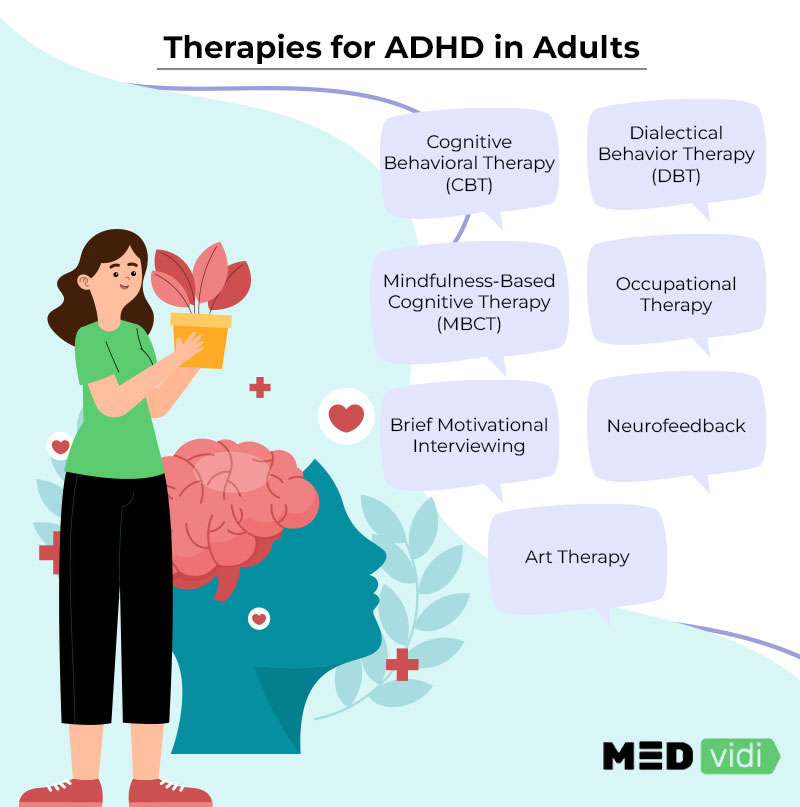Mental Health Services Designed for Effective Care Needs
Exploring Effective ADHD Treatment Alternatives for All Ages
The intricacies of Interest Deficiency Hyperactivity Problem (ADHD) present distinct challenges throughout various age groups, demanding a detailed expedition of reliable therapy alternatives. A mix of behavioral treatments, medicinal interventions, and lifestyle alterations has shown assurance in attending to the varied demands of individuals with ADHD. Nonetheless, the efficacy of these strategies can vary substantially based upon personal circumstances, raising critical questions concerning customized methods. As we take a look at the spectrum of therapy methods readily available, it ends up being necessary to consider not just their immediate influences however additionally their lasting implications for people and households.
Comprehending ADHD and Its Influence
Attention-Deficit/Hyperactivity Condition (ADHD) is a neurodevelopmental problem characterized by relentless patterns of inattention, hyperactivity, and impulsivity that can significantly impact numerous aspects of a person's life. It typically materializes in childhood years, although symptoms can continue right into adulthood. The core signs of ADHD can interfere with educational performance, impede social communications, and complicate work undertakings.
People with ADHD frequently fight with keeping concentrate on tasks, organizing activities, and adhering to through on guidelines, which can lead to academic underachievement (Depression Treatment). In social contexts, impulsivity might cause difficulties in forming and sustaining connections, as people might disrupt conversations or make hasty decisions without thinking about repercussions
Additionally, ADHD can co-occur with other mental health problems, such as anxiousness and clinical depression, further making complex diagnosis and therapy. The irregularity in sign presentation implies that ADHD can affect individuals differently, demanding a tailored strategy to monitoring. Comprehending ADHD's diverse impact is crucial for developing effective approaches that sustain individuals in navigating daily obstacles and accomplishing their potential. Comprehensive recognition of ADHD's nature and effects prepares for exploring suitable therapy options tailored to every person's requirements.
Behavioral Therapies for ADHD
Numerous behavioral treatments have been created to effectively address the obstacles connected with ADHD, concentrating on customizing details actions and promoting essential skills. Among the most recognized approaches are cognitive-behavioral therapy (CBT), moms and dad training, and social abilities training.
CBT aids people recognize and transform adverse idea patterns and habits, promoting a more positive outlook and boosted self-regulation. This treatment often includes practical methods for handling impulsivity and improving company. Moms and dad training programs equip caregivers by outfitting them with methods to enhance positive habits and set consistent boundaries, which can be particularly helpful for kids with ADHD.
Social skills training is another crucial part, teaching people with ADHD just how to communicate effectively with peers - Depression Treatment. This technique usually includes role-playing and responses to enhance communication, cooperation, and dispute resolution skills
Including these behavior modifications into a thorough therapy plan can substantially improve operating and quality of life for people with ADHD. Inevitably, the efficiency of these treatments relies on tailored strategies that take into consideration the one-of-a-kind requirements of each person, consequently fostering resilience and adaptability in every day life.
Medicine Options Available
For numerous people with ADHD, medicine can play a considerable role in handling signs and symptoms and boosting total performance. The 2 key classifications of medicines prescribed for ADHD are stimulants and non-stimulants.
Energizers, such as methylphenidate and amphetamine-based medications, are the most commonly made use of therapies. These medications work by enhancing the levels of neurotransmitters, specifically dopamine and norepinephrine, in the mind, which helps enhance attention and minimize impulsivity and hyperactivity. They usually yield fast outcomes, making them a favored choice for numerous people.

It is vital for medical care carriers to perform a comprehensive evaluation to identify the most suitable medicine based on individual needs, clinical history, and prospective adverse effects. Routine follow-up and monitoring are also essential to guarantee the efficiency of the chosen therapy and to make any essential adjustments.
Way Of Life Changes to Take Into Consideration
Managing ADHD successfully expands past medicine, as lifestyle changes can dramatically boost general wellness and symptom control. Including organized routines is essential; consistent timetables aid individuals with ADHD manage their time successfully and lower feelings of bewilder.
Routine physical activity is an additional crucial element. Workout not just helps to boost focus but additionally improves mood and reduces stress and anxiety levels. Activities such as yoga exercise or team sporting activities can be especially advantageous, advertising both physical fitness and social interaction.
Nourishment additionally plays a crucial role. Depression Treatment. A well balanced diet regimen rich in omega-3 fatty acids, entire grains, and lean healthy proteins can add to improved emphasis and cognitive function. Restricting sugar and processed foods is advisable, as these can worsen hyperactivity and impulsivity
Sleep hygiene is crucial for managing ADHD signs and symptoms. Developing a routine rest schedule and creating a peaceful environment can improve sleep quality, causing much better interest and emotional regulation.
Alternative and Alternative Techniques
Different and all natural approaches to ADHD treatment provide a varied array of options that enhance traditional methods. These techniques commonly concentrate on way of life alterations, nutritional treatments, and therapeutic methods that intend to enhance overall well-being while resolving ADHD signs and symptoms.

Mindfulness and behavior therapies are likewise acquiring traction as all natural treatments. Practices Telehealth Psychiatrist such as yoga, meditation, and cognitive-behavioral treatment can cultivate self-regulation and improve focus. These methods support emotional strength, which is especially beneficial for individuals with ADHD.
Organic supplements, such as ginkgo biloba and ginseng, are sometimes discovered; nevertheless, it is vital to speak with medical care specialists before incorporating these right into therapy strategies. While option and alternative strategies can supply beneficial support, they must preferably be made use of in conjunction with evidence-based treatments to achieve optimum results for taking care of ADHD across all ages.
Conclusion
In recap, reliable ADHD therapy requires a detailed strategy that includes behavioral therapies, drug, way of life adjustments, and all natural approaches. This multifaceted technique underscores the importance of individualized care in attending to the diverse demands of individuals with ADHD throughout all age teams.